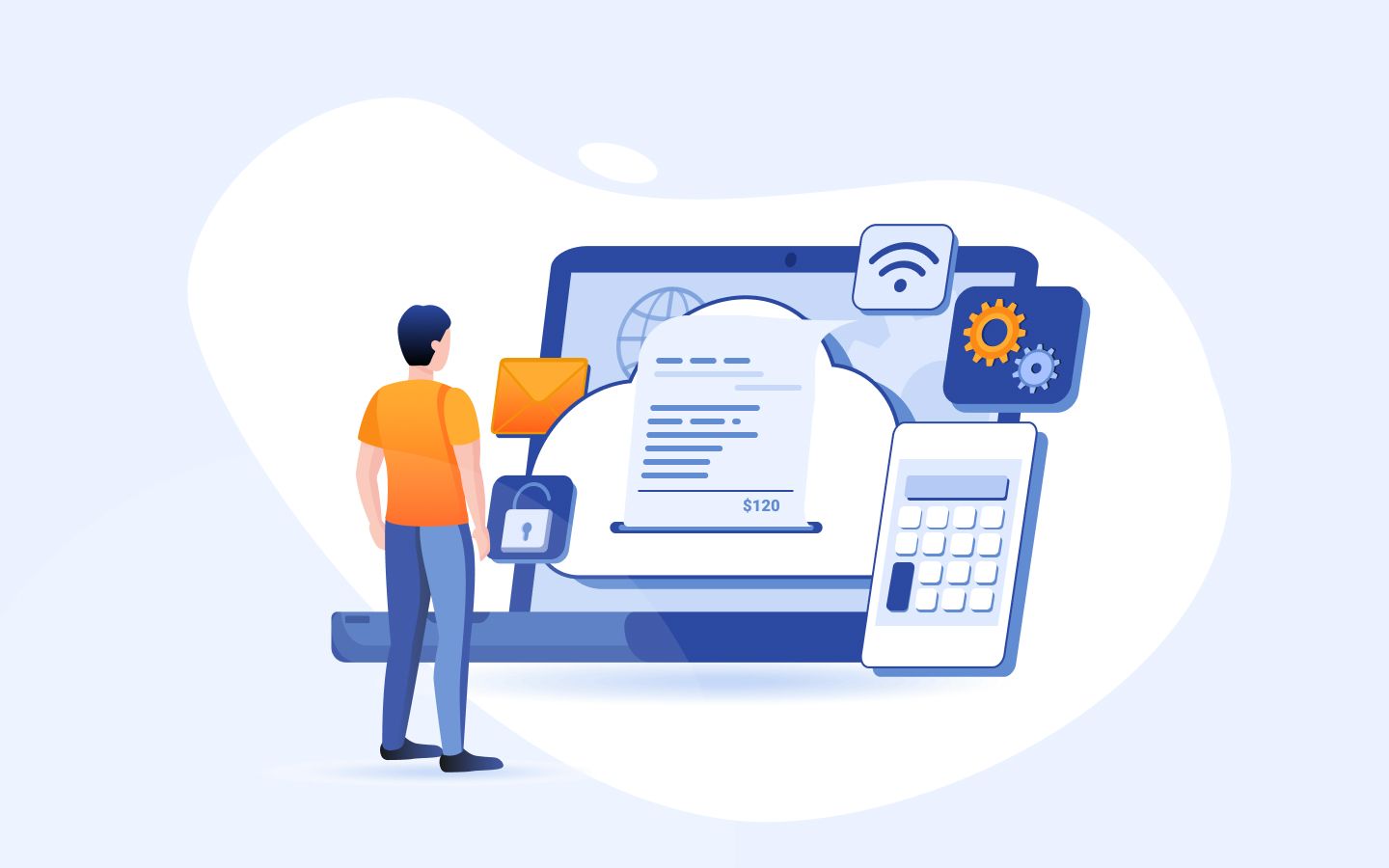According to Flexi, the global market for cloud-based accounting will grow to $4.25 billion by the end of 2023.
Cloud accounting, an emerging trend in accounting and finance, is bringing a significant shift in the accounting process. Companies can save money, effort, and time by signing up with cloud accounting software. This eliminates the need to install expensive software on each employee's system.
In recent years, the cloud has become an increasingly important part of the IT sphere. This article will explore what cloud accounting is, how it works, and what advantages it provides to your business.
What is cloud accounting?
For centuries, people have kept accounts of their income and expenditure on paper. Double-entry bookkeeping, which uses both sides of accounting sheets to account for a business's finances, has been around since the 18th century. These days, accounting software allows companies to track their income and expenditure in real-time.
So, how does cloud accounting improve on this? Here are the key differences:
Traditional accounting:
This is about as old-school as it gets! Before cloud accounting, most accounting software's were installed locally on a computer. This means that all financial data used by the accounting software is stored on your office PC. This is fine as long as you stay within your internet service providers bandwidth limits, but it means you can't access your data from other computers or online services.
Cloud accounting:
Cloud accounting (also known as online accounting) is a secure and efficient way for small businesses to manage their daily finances. Cloud accounting means you can access your books from anywhere and work on your finances whenever you want. You’ll also never need to worry about losing important documents or other data to a fire or flood.
Cloud accounting is a way for small businesses to get into the accounting software game without breaking the bank. It’s also a great way for accountants to keep their clients in one place, with easy access to all of their data. Cloud accounting software’s most significant benefit is that it’s highly cost-effective. The cloud takes care of servers and storage, so you don’t have to worry about upgrading your hardware.
The most important aspect of a cloud platform is its ability to provide you with additional value, which we will go through in the next section. There are several ways that cloud platforms can provide value to your business. Some of these include APIs, multi-tenancy, and hybrid strategies. An API allows third-party developers to connect with your system, making your company more valuable as a business.
According to Flexi, companies using cloud accounting will add five times more clients than companies not using these tools.
Benefits of cloud accounting
- Access from anywhere: The most significant advantage of cloud-based accounting is that your data is always available from any device. It enhances your productivity and saves you time. It also allows other departments to access the same data and work together more effectively.
- Real-time: With an online accounting system, it is easier to track real-time data. Cloud-based accounting eliminates the need to spend time reconciling past transactions to see your business's current financial status. The essence of this real-time overview will be observed when making significant strategic and financial decisions. It will help you determine if the project is worthwhile, too wasteful, or has the money not been spent on a good idea.
- Automation: In the age of automation, getting your hands dirty with manual accounting tasks is like swimming in quicksand. The better option is to invest in software that helps automate tasks and also simplify the accounting process. Automation is an indispensable tool in today's business environment. It's more necessary than ever for businesses to focus on the core task rather than crunching numbers all the time. Automation will free up much of your time and allow you to focus on more important tasks and learn how to perform new ones. Automation is what makes a business tick. It enables businesses to focus on what they do best, their core business tasks. An easy way to automate mundane accounting tasks is with accounting software.
- Integration: Cloud accounting software are extremely flexible and can be customized to meet your business needs. They can be integrated seamlessly with your existing accounting system, which will also save you time and money by automatically importing bank statements.
- Access app ecosystem: The essence of open APIs is to give you the ability to share, exchange, and integrate data with many different third-party tools. There are a number of practical business applications that have all sorts of features and functions customized for specific industry needs.
- Data security: The biggest concern about cloud computing is that there's no security. Cloud providers may or may not keep data secure, but the fact is that your data is more secure in the cloud than on your on-premise systems. No one can access it unless they are authorized.
- No maintenance cost: With cloud, you don’t have to install and manage software. Plus, you don’t have to update it. Cloud-based software upgrades automatically as new features and functionality are introduced. It saves you both money and time!
Before you select an accounting software, ask these questions:
- Is your software the right fit for my business?
- Can you customize it to suit my needs?
- How many customers and staff can your software handle?
- What level of support is included, and what are the fees?
- Is your data backed up? Can access be restored immediately after an outage?
- What security measures do you have in place to protect both my business and customers' data?
- How much is the total cost for your service? Are there any setup fees or expenses?
- What kind of tech support do you provide? Do you offer phone or live chat support?
Cloud accounting software
Cloud accounting can be overwhelming, but it doesn’t have to be. The right cloud accounting provider will help you make sense of your finances in the cloud, and that is far more important than any other factor.
A few cloud providers to choose from:
Related: Top 3 Accounting Apps For Small Businesses
Conclusion
In essence, cloud accounting is the perfect solution for businesses that need to manage their accounts. Businesses can use a cloud-based system like Intuit QuickBooks Online or Xero to keep their books and records in check and stay up-to-date. People are starting to trust that these systems are secure.
An excellent example to use here is internet banking — people initially resisted it, but now everyone is embracing it. In the same manner, cloud accounting is going to be a great asset for small and large businesses. With companies starting to use cloud-based accounting software, it’s important for them to have the best possible solution. Don’t miss out on this opportunity.
The application integration of cloud accounting is a key factor in your success. Quickworks’ “one-to-many” approach means you can integrate accounting across all of the leading cloud accounting services in a fraction of the time and cost. Get started for free on our platform and integrate your systems and applications within no time.
Happy Accounting!








